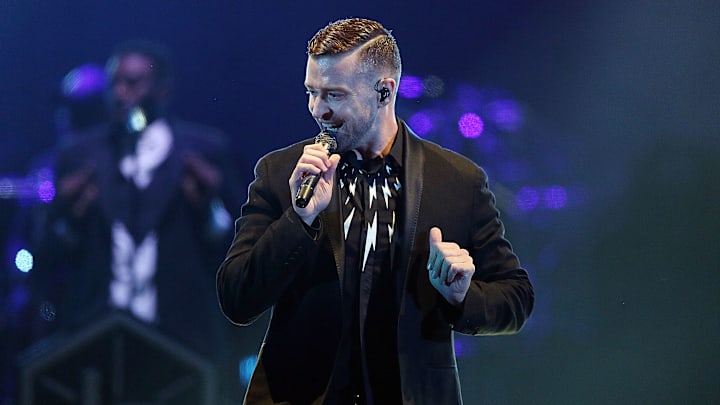The 2010s were a decade when music became more connected to moments than to albums. Social media and streaming transformed how listeners consumed music — and how fast they reacted to it. Because of this, some albums were declared classics within hours of release, driven more by viral buzz, stan loyalty, and spectacle than thoughtful evaluation.
The conversation around music became louder, but not always more accurate, giving certain albums a level of praise that didn't hold up under closer inspection.
Streaming also changed how albums were made. Artists and labels began prioritizing quantity over quality, stuffing albums with 15 to 25 tracks to maximize streams. The result? A wave of overlong, inconsistent projects that dominated charts but didn’t leave much of a lasting emotional or creative impact.
10 overrated albums of the 2010s
These albums weren’t necessarily bad — many had hits — but they were often bloated or shallow, leaning heavily on features, trends, or hype instead of clear artistic vision.
Finally, the cult of personality played a huge role in inflating certain albums. In an era when branding often overshadowed musicianship, an artist’s personal life or image could boost an album’s reputation before the music was even heard.
READ MORE: Sammy Hagar almost single-handedly ruins Black Sabbath farewell concert
As a result, some projects received praise based more on who made them than on how they sounded. Looking back, it's clear that not every hyped release of the 2010s was built to last — or deserved the pedestal it was placed on.
DJ Khaled – Grateful (2017)
Packed with star-studded features and big-name producers, Grateful was more spectacle than substance. Despite its chart-topping singles, the album was bloated, repetitive, and lacked a unifying voice. It felt like a playlist made for streaming stats, not storytelling or cohesion.
Sam Smith – In the Lonely Hour (2014)
Sam’s vocal talent is undeniable, but this debut leaned heavily on heartbreak clichés. While “Stay With Me” dominated charts, the album was emotionally repetitive and stylistically one-note.
Justin Timberlake – The 20/20 Experience (1 of 2) (2013)
Marketed as a mature, artistic comeback, this album received overwhelming early praise. But behind its cinematic production, it dragged with overly long tracks and lacked the spark of JT’s earlier hits.
Macklemore & Ryan Lewis – The Heist (2012)
Winning a Grammy over Kendrick Lamar’s good kid, m.A.A.d city says it all. The Heist had radio appeal, but its surface-level commentary and forced sentiment didn’t hold up under critical weight.
Lana Del Rey – Born to Die (2012)
Lana’s aesthetic became a blueprint, but the music on her debut often didn’t match the mood she was selling. Despite its cult following, the album felt overproduced and emotionally distant.
Childish Gambino – Because the Internet (2013)
Creative? Yes. Overpraised? Also yes. While ambitious in concept, the execution was messy and uneven. It’s often praised for what it tried to be rather than what it truly accomplished.
Ed Sheeran – ÷ (Divide) (2017)
With monster hits like “Shape of You,” Divide crushed sales, but its songwriting leaned on bland formulas and repetitive themes. It was everywhere, but musically, it played things far too safe.
The Weeknd – Starboy (2016)
Despite slick production and Daft Punk collaborations, Starboy lacked the emotional weight and consistency of Beauty Behind the Madness. It felt more like a brand reset than a fully developed album.
Lorde – Melodrama (2017)
Critics hailed Melodrama as genius, but its minimalism and metaphor-heavy lyrics didn’t always connect. While sonically interesting, it sometimes leaned too hard on mood and not enough on melody.
Travis Scott – Astroworld (2018)
The production was stunning, but Astroworld often felt more like a vibe than a fully realized album. Its lack of lyrical depth and over-reliance on guests made it feel more like a playlist than a personal statement.
The 2010s were an exciting but chaotic time for music — a decade where visibility often trumped depth and hype moved faster than honest critique. Many of the albums we remember as "defining" were more reflective of the moment than the music itself. They were boosted by marketing machines, viral trends, and the sheer power of fandom, rather than innovation or cohesion.
This isn’t to say these artists lacked talent — far from it — but in many cases, their most celebrated work wasn’t always their strongest. Revisiting these albums with fresh ears reminds us that popularity and praise don’t always equal legacy. Some records fade when the noise quiets — and that’s okay.
It opens space to celebrate the albums that truly endure because of their substance, not just their spotlight.
